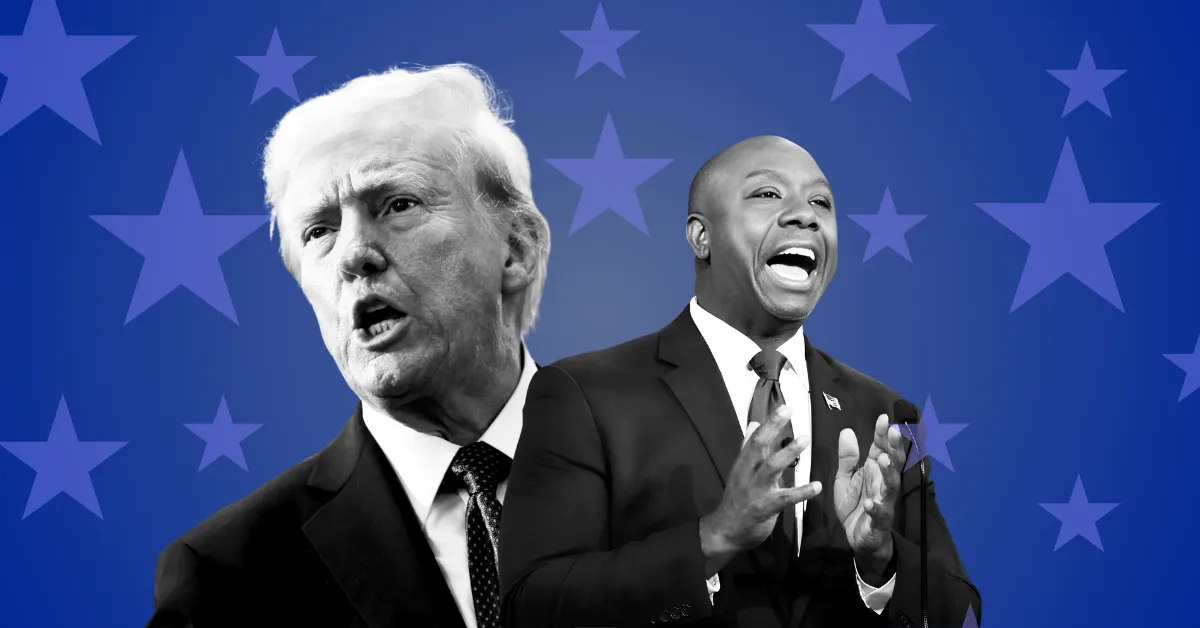
Tim Scott blames Democrats for blocking the GENIUS Act, accusing them of political games.
Treasury Secretary Scott Bessent warns the Senate’s failure on stablecoin regulation weakens U.S. leadership in the global crypto race.
Industry leaders, including Mike Novogratz, criticize the Senate’s inaction, fearing the U.S. risks falling behind in stablecoin innovation.
The U.S. just stumbled on what could have been a breakthrough moment for crypto but somehow, fumbled it. Yes, you read that right.
The Senate’s decision to block the GENIUS Act stalled stablecoin regulation and also set off a firestorm. From the Treasury Secretary to top crypto voices, the backlash was immediate and loud.
What was shaping up to be a rare bipartisan win has now turned into a mess of political finger-pointing. Here’s what it has boiled down to: accusations of corruption, crypto power plays, and a fight over who really controls the future of digital assets in America.
Is politics to blame for it all? Let’s understand.
Is the Senate Playing Dirty Politics?
The GENIUS Act, short for Guiding and Establishing National Innovation for US Stablecoins Act, had cleared early hurdles with bipartisan support. It aimed to create a clear federal framework for stablecoins and was seen as a meaningful step forward for crypto innovation in the U.S.
But that changed on May 8, when the bill failed to reach closure in the Senate.
Senate Banking Committee Chairman Tim Scott didn’t hold back. He blamed Democrats for backing away at the last moment, claiming they prioritized political optics over progress.
“Instead, we witnessed a disappointing display of political gamesmanship that puts partisan politics above policy, and obstruction above innovation,“ Scott said.
He argued the real motive was to deny President Trump a win in the digital asset space.
“It was a vote against President Trump and President Trump’s legislative agenda. It was a vote to stop President Trump from having a victory in the digital asset space.“
Treasury Sounds the Alarm
Not long after the vote, Treasury Secretary Scott Bessent joined the criticism. He warned that the Senate’s move sends the wrong message globally at a time when digital assets are racing ahead.
“For stablecoins and other digital assets to thrive globally, the world needs American leadership,” Bessent posted on X. “The Senate missed an opportunity to provide that leadership today by failing to advance the GENIUS Act.”
Meanwhile, the Anti-Crypto Front Gets Louder
While one camp pushes for stablecoin clarity, another is busy building walls.
Democrats recently introduced the Modern Emoluments and Malfeasance Enforcement (MEME) Act, aimed at preventing federal officials from profiting off memecoins. And earlier this week, Senators Jeff Merkley and Chuck Schumer dropped the End Crypto Corruption Act.
That bill seeks to ban the president, vice president, Congress members, senior officials, and their families from benefiting financially from crypto assets – including stablecoins and memecoins.
Senator Elizabeth Warren echoed the concern in a comment to CBS News, arguing that Democrats on both sides of the GENIUS vote “agree that green-lighting Donald Trump’s corrupt stablecoin deals is wrong.”
The claws are out, it seems.
Industry Wants Action, Not Politics
Crypto voices outside Washington also spoke up. Galaxy Digital CEO Mike Novogratz called on the Senate to get back to the table.
Many in the industry agree. With regions like Europe already rolling out frameworks like MiCA and Asian markets moving fast, the U.S. now looks increasingly indecisive.
A Missed Opportunity with Real Consequences
Without clear rules, stablecoin innovation remains stuck with no answers.
Developers face uncertainty, major players stay cautious, and the U.S. risks losing its edge to more agile jurisdictions. The GENIUS Act may be down for now, but the bigger question remains: can the U.S. afford to keep stalling while the rest of the world moves forward?
Never Miss a Beat in the Crypto World!
Stay ahead with breaking news, expert analysis, and real-time updates on the latest trends in Bitcoin, altcoins, DeFi, NFTs, and more.
FAQs
The GENIUS Act aimed to create a federal framework for stablecoins but was blocked in the Senate, stalling progress on crypto regulation.
With the GENIUS Act stalled, the future of stablecoin regulation remains uncertain, and the U.S. risks falling behind other global markets.








